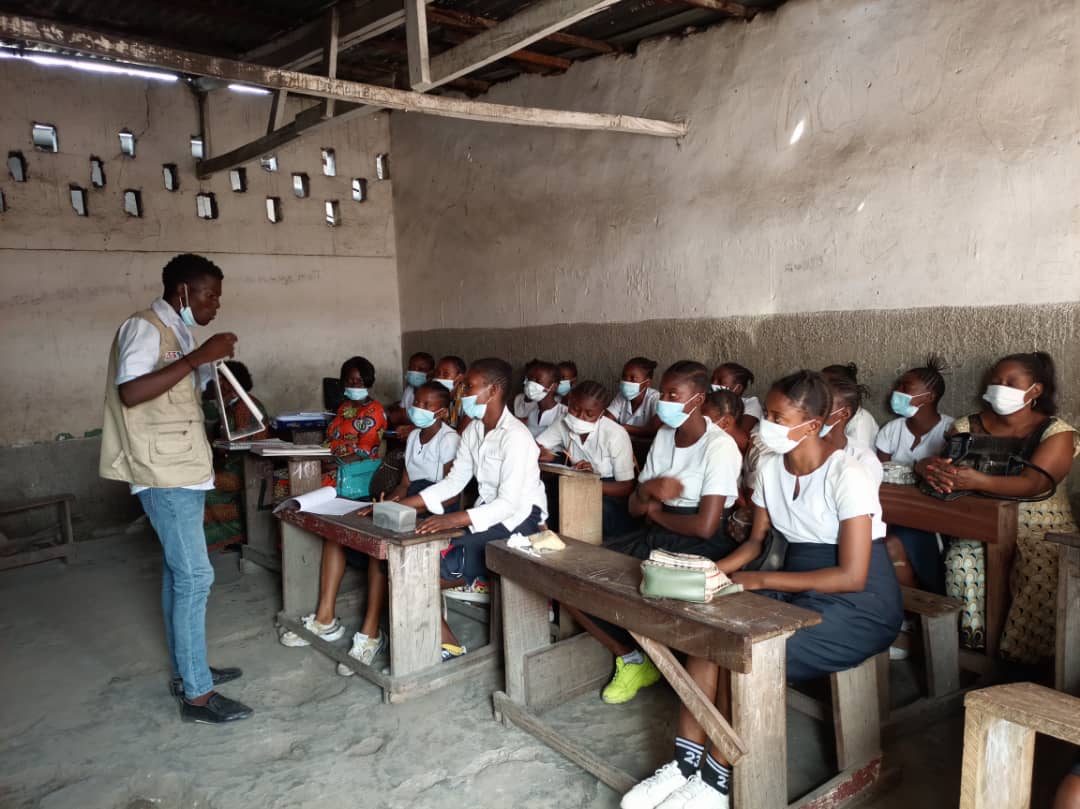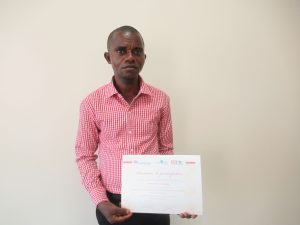News

Well done! Teachers take action to address sexuality-related taboos in the DRC
5 October 2021
On this World Teachers’ Day, Santé Monde collected testimonies from the Democratic Republic of Congo that show the central role that teachers play in the development of young people in several areas of their lives, including comprehensive sexual health education.
It is with renewed enthusiasm that Mr. Thimoté Kayolo Kamonimambu teaches the biology and family life education course at the Lycée Marie-Madeleine in Kinshasa, Democratic Republic of Congo. Thanks to the support of health professionals and adapted tools, Mr. Kayolo feels more confident in front of his students who, otherwise, would have difficulty accessing a complete sexual education.

Sexuality, a taboo
When Santé Monde (formerly CCISD) met with adolescents as part of the preparatory work for the Access to Health Services in Kinshasa (ASSK) project in April 2018, they voiced their lack of access to sexual and reproductive health-related information because sexuality is considered a taboo. “It’s difficult to talk about it both within the family and in the community,” reports Marie Jeanne Tusey, a project worker who was present during these exchanges. “However, the teens testified that they had an easy dialogue between themselves and also with the teachers of the FLE [family life education] and biology classes, since these classes deal with related themes.
Well-trained teachers, mobilized teenagers
Soon after, the ASSK project team contacted the Ministry of Primary, Secondary, and Technical Education and schools in the 7 health zones of the City Province of Kinshasa to offer training to teachers and youth groups, following a peer education logic. After the training, Mr. Kayolo shared his appreciation with the ASSK project team:
“We have been teaching this course for several years, but we had difficulties with the tools, the manuals, even the concepts we had to explain to the kids. After the time we’ve spent here [in the training], we’re better equipped, we have a curriculum that’s well developed, we have a guide that allows us to teach these courses in all levels, and we now have the knowledge that helps us better answer questions [from youth].”
Now, teachers who have received the training are much more comfortable explaining the various topics contained in the National Family Life Education Program. One group of teachers has even mobilized to advocate for an increase in the amount of time devoted to their classes, as they feel that it “develops life skills in adolescents,” reports Ms. Tusey. As for the awareness-raising activities carried out by the peer educators, they have been so successful that they have attracted the interest of teenagers from other schools who have not yet benefited from the training.
Hats off to the teachers!
The ASSK project is funded by Global Affairs Canada and is implemented by Santé Monde (formerly CCISD – Centre for International Cooperation in Health and Development) in consortium with the ICU/CHUM (International Health Unit of the Centre hospitalier, Université de Montréal).
